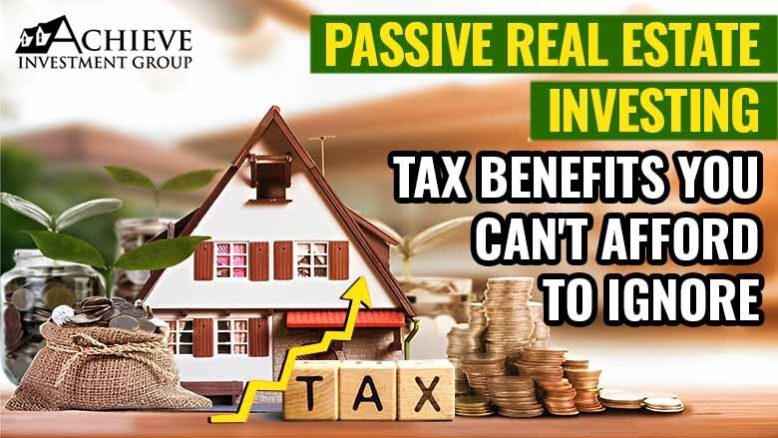Passive Real Estate Investing: Tax Benefits You Can’t Afford to Ignore
Passive investing has become increasingly popular in recent years, particularly in the real estate market. Passive real estate investing allows investors to generate passive income without actively managing a property. This strategy has proven to be a great way to earn a steady stream of income and build wealth over time. However, one aspect that is often overlooked is the tax benefits that come with passive investing. In this article, we’ll explore the tax benefits of passive investing, and how you can maximize your returns. Understanding Passive Investing Passive investing is a strategy that involves investing in assets that generate a steady stream of income without requiring the investor to actively manage the asset. In the real estate market, this can include investing in rental properties, real estate investment trusts (REITs), or crowdfunding platforms. Unlike active investing, passive investing doesn’t require investors to have hands-on involvement in managing the property or making decisions about it. Passive Investors and Taxes Passive investors enjoy several tax benefits compared to active investors. For example, the income generated from passive investments is typically taxed at a lower rate than active income. Additionally, passive investors can take advantage of tax deductions and credits that aren’t available to active investors. Passive Real Estate Investing and Tax Benefits Real estate is a popular asset class for passive investors, and it also offers several tax benefits. Here are some of the tax benefits of passive real estate investing: Depreciation: Depreciation is a tax deduction that allows investors to write off the cost of the property over time. This deduction reduces the investor’s taxable income, which can result in significant tax savings. Capital Gains Tax: When you sell a property for a profit, you are required to pay capital gains tax. However, if you hold the property for more than a year, you can take advantage of lower long-term capital gains tax rates. 1031 Exchange: A 1031 exchange allows investors to defer capital gains tax when they sell a property and use the proceeds to purchase another property. This allows investors to reinvest their profits into another property without paying taxes on the gain. Best Passive Income Investments for Tax Benefits Here are some of the best passive income investments for tax benefits: Real Estate Investment Trusts (REITs): REITs typically generate income through rental income and capital appreciation of their properties. As a shareholder, you can earn a share of the rental income generated by the properties without having to own or manage them directly. REITs also offer several tax benefits, including deductions for depreciation and interest expenses. Crowdfunding Platforms: Crowdfunding platforms allow investors to pool their money together to invest in real estate properties. These platforms offer passive investors the opportunity to earn a share of the rental income without having to actively manage the property. Crowdfunding investments also offer tax benefits, including deductions for depreciation and expenses. Dividend Stocks: Dividend stocks are stocks that pay dividends to shareholders. These dividends are typically taxed at a lower rate than regular income, making them an attractive option for passive investors. Maximizing Your Returns To maximize your returns from passive investing, it’s important to understand the tax benefits that come with it. By taking advantage of these tax benefits, you can reduce your tax bill and increase your net returns. Additionally, it’s important to choose the right passive income investment that aligns with your financial goals and risk tolerance. Conclusion Passive investing offers several tax benefits that can help investors maximize their returns. By understanding the tax benefits of passive real estate investing and other passive income investments, investors can reduce their tax bill and increase their net returns.


